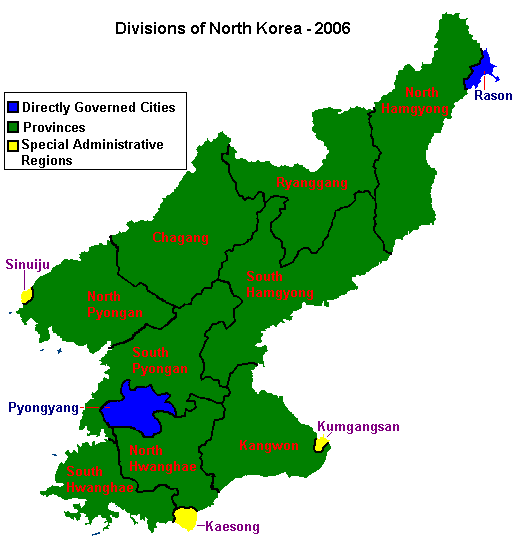My last five blog posts were about the situation in North Korea. I covered aspects of North Korean government, our history with North Korea, current diplomacy, international aspects, our attempts to gain the assistance of China in ending the North Korean nuclear program, a review of the North Korean nuclear program, an overview of the North Korean submarine fleet and its threat and the ways in which North Korea has been able to raise the money to develop nuclear weapons. Today, I am going to talk about North Korean motivations for the possession of nuclear weapons.
Since the truce that halted the hostilities of the Korean War in 1953, North Korea has existed in a state of perpetual preparation for war. About one in four Korean North Koreans is in the Army and about a quarter of the North Korean GDP is spent on weaponry and the military. The leaders of North Korea maintain their power partially on the basis of the claim that they are always under threat of attack by powerful nations. The development of nuclear weapons is seen as a necessary deterrent to prevent invasion by their enemies. Considering what happened when Muammar Gaddafi when he agreed to end his nuclear weapons development program, they feel that they have good reason to keep their nuclear weapons.
North Koreans have motivations beyond deterrence which have reinforced their quest for nuclear weapons. Apparently, they believe that possession of nuclear weapons will discourage other countries from attempting to meddle in the internal affairs of North Korea and give its leaders the latitude to experiment with economic reforms. This is the course that China followed after it developed a nuclear arsenal.
Secure in the efficacy of his nuclear arsenal, Kim Jong on has already been making changes to North Korea’s economic system. Kim has reformed the agricultural sector with great success. Recent harvests have broken the records of previous years which is a very important achievement given that North Korea has been ravaged by widespread starvation in the past. Kim is now working on the mechanization of agriculture in North Korea. In addition, he is working to automate factories and increased coal production.
The Rason special economic zone was established in 1992 by Kim Il-sung, the founder of North Korea and the grandfather of Kim Jong-Un, the current leader. In recent years, Kim Jong-Un has focused on the creation of special economic zones with regulations designed to entice foreign firms. In 2013, Kim opened a dozen of these special economic zones with another dozen opened in 2014 and two more zones in 2015. Unfortunately, the development of these zones has been slow because of the bureaucracy and internal politics of North Korea.
The Chinese appreciate better than any other nation the course that North Korea is on. They understand the pride and insularity of North Korea and they do not believe, despite the prevailing attitude in the West, that severe economic pressure will ever cause North Korea to surrender its nuclear arsenal. Increasing economic pressure with sanctions may only serve to increase North Korea’s resolve to be seen as a very dangerous adversary who must be taken seriously and will not be intimidated easily. While China acknowledges that it has a great deal of influence with North Korea, it insists that any restraints on North Korean nuclear ambitions must be negotiated between the leaders of North Korea and the United States.
Rason special economic zone:
